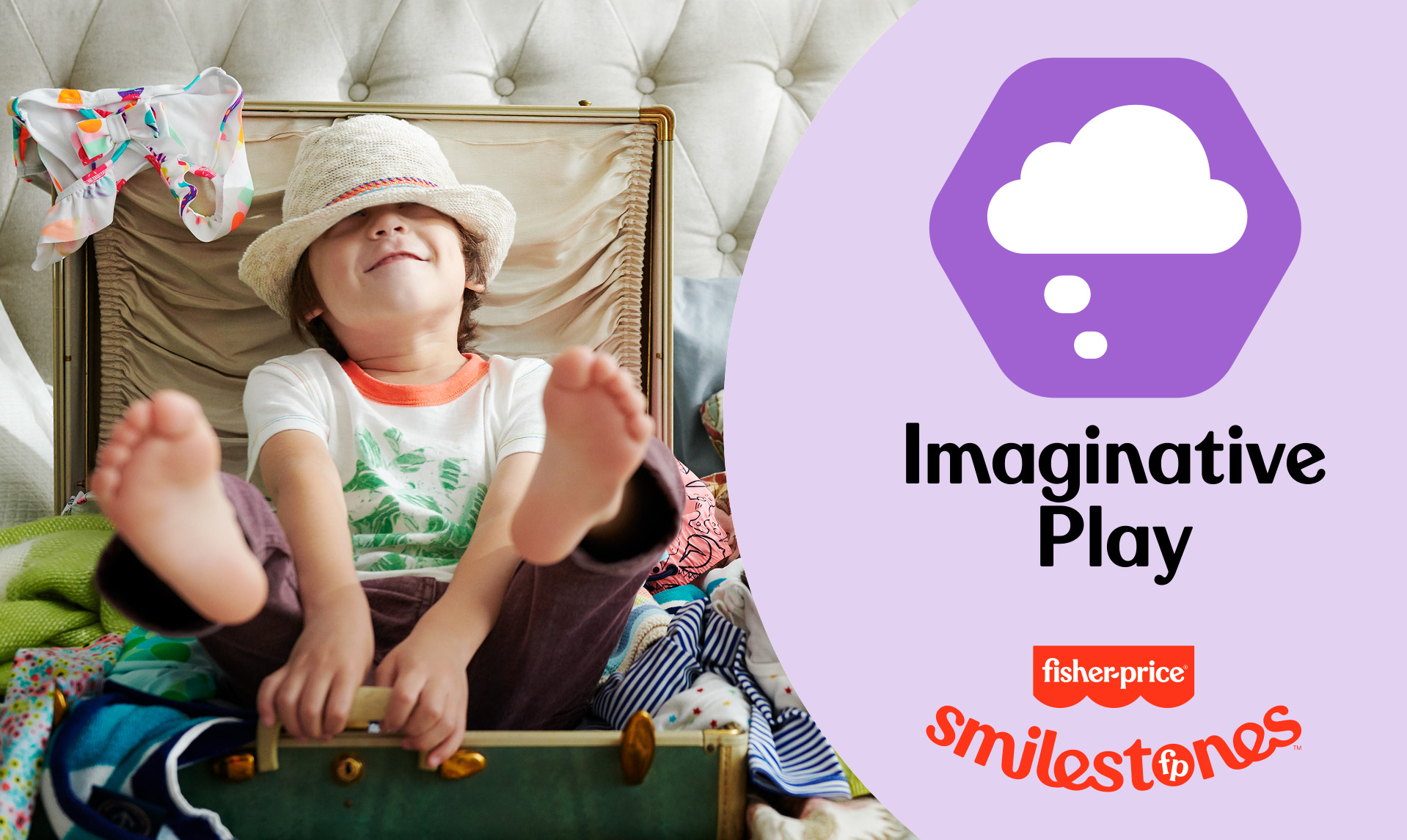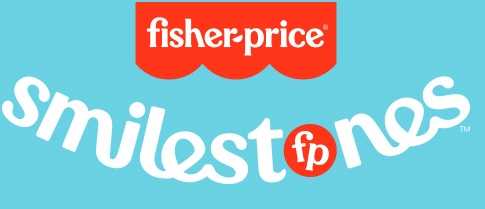From Pirates to Problem-Solvers: How Imaginative Play Can Shape Your Preschoolers’ Future
August 2, 2023

Hi there! I’m a Child Development Researcher at the Fisher-Price Play Lab, and after many years working with children, I’m thrilled to be a new Mom myself to a 6-month-old baby girl!
I’ve dedicated my career to understanding how play & toys can shape children’s development. Through extensive hands-on experience, I’ve seen the incredible benefits of imaginative play. We’ll dive into why imagination is so great for your kiddo’s development, and how you can nurture it in the most delightful (but also practical) ways.

Why imagination matters!
Imagination & play aren’t just about entertainment, they’re about entering the gates to a world of skill-building and self-discovery. Imaginative play holds the key to unlocking the developmental milestones that your preschooler needs as they head into kindergarten. Through creating their own stories, (an early literacy skill) conflict often arises, encouraging them to practice problem-solving skills and independent thinking strategies. Perhaps someone is trying to overthrow a hero headquarters or there’s a wild Dinosaur on the loose! Scenarios like this become the perfect opportunities to exercise their creativity & critical thinking, which are some of the most important skills they’ll need in life!

Basic Tips
Now that we have some background on imaginative play, I want to share some practical tips to help you nurture your preschooler’s imagination!

1. Keep it open-ended.
Offer toys that stimulate their creativity and imagination, less is more. Avoid toys with specific instructions or rules, and instead let them take the lead. Mix & match action figures and vehicles with something like construction paper or tape.

2. Make-believe meets real-world
Inviting imaginative play into something like a doctor’s office visit is the perfect way to connect with your child and ignite their creative spirit. Put on your imaginary capes and pretend to be their favorite heroes flying up to the top of the building as you enter the elevator. This also can make a typically nervous experience much more pleasant for everyone.

3. Props & accessories
Give your preschooler easy access to a bin of dress up clothes to rifle through; especially things that make super fun accessories for any costume! The sillier and more outrageous the better.
Surprising Tips
Ready for some extra tips to level-up your preschoolers’ imagination? I’ve collected a few over the years, and I’m ready to share some unexpected ways to play!


Imaginative play timeline for preschoolers
Here’s a glimpse into what imaginative play might look like for your preschooler, keeping in mind that every kiddo develops at their own pace.

3-5 years Acts out emotions during pretend play

4-5 years Engages in planned pretend play, with a story in mind, gathering props, toys or supplies to act out an entire idea

4-5 years Begins to add more imaginative details to their play

4-5 years Shows a desire for toys that replicate things from the real world

4-6 years Can move in and out of pretend play roles to orchestrate roles for friends in play using props, accessories, or toys (for example, you be the dragon and I’ll be the wizard)




Parent check-in
Don’t hesitate to join your child on their fantastical journeys, and let your own imagination run wild! Together, you can unlock endless possibilities that live within their vivid imaginations, helping to guide & shape them into the confident, empathetic & resilient people we want to send out into the world! Go ahead and have some fun of your own on those extraordinary adventures with your little one, (even if it’s just in the living room!)😉
Gentle reminder: If you ever have concerns about your child’s development, trust your gut and reach out to your pediatrician.”

Bringing a smile to milestones.
Say hello to happier parenting. We’re here to help you celebrate the little victories, let go of expectations, and pick up more positivity. Because after more than 90 years of helping families, we’ve learned that development happens naturally when fun leads the way.
Learn More





































